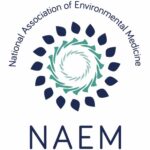Good News For Cosmetics Safety: Washington State Passes Law Regulating Toxic Ingredients
 Jamie McConnell Deputy Director |
Good News For Cosmetics Safety: Washington State Passes Law Regulating Toxic Ingredients
Good news for cosmetics safety. Washington state just passed the strongest law yet regulating ingredients in cosmetics, personal care, and professional salon products. The Toxics Free Cosmetics Act goes beyond other state laws like California’s Toxic-Free Cosmetic Act by banning ortho-phthalates, additional formaldehyde-releasing agents, triclosan, and restricting lead. The Washington law also bans other harmful chemicals that are banned under the CA Toxic-Free Cosmetics Act.
Our recent report Exposed: Ingredients in Salon Products and Salon Worker Health and Safety, highlighted the fact that there has been very little innovation in product safety of professional salon products and the few harmful ingredients that have been removed from products have often been replaced with regrettable substitutes that are not any safer. The Washington law may help this significant problem in the future.
Any ban on harmful ingredients from products obviously creates incentives for manufacturers to reformulate, but usually there is nothing stopping manufacturers from replacing the banned chemical with another chemical just as harmful. The Washington law includes a requirement that the Department of Ecology use existing information to evaluate the hazards of chemicals or chemical classes that provide the same function as the banned the chemical and that have particular impacts on vulnerable populations. The Department must make that information public, helping to make it easier for the public and advocates to evaluate whether the alternatives are any safer. This information can also aide manufacturers in avoiding regrettable substitutes when they reformulate.
As an organization that has worked to increase salon worker health and safety for the last 15 years, WVE was also excited to see the law specifically includes support for independent cosmetologists and beauty salons to transition to safer cosmetic products by providing technical assistance and support, resources for identifying safer choices, and financial incentives to support transitioning to safer products. We hope that similar laws introduced in other states include such provisions, to support small businesses making the transition.
The non-profit organization behind the passage of the Washington law, Toxic-Free Future, worked with salon workers like Merideth Pedack to uplift the experiences of salon workers. Merideth provided testimony at the bill’s hearing and was at the bill signing with Governor Inslee. It’s important that the voices of salon workers, like Merideth’s are centered in conversations around why this type of law is needed.
State laws regulating ingredients in cosmetics are becoming increasingly important in light of the passage of the Modernization of Cosmetics Regulation Act (MOCRA). While MOCRA takes several steps to advance cosmetics safety forward, it does not ban toxic chemicals from use in these products and importantly, does not preempt or prohibit states from taking action to ban toxic chemicals. So hopefully we see more states like Washington pass similar legislation.
Want to stay informed on this topic? Sign up for WVE’s alerts to receive the latest information about cosmetics safety.




